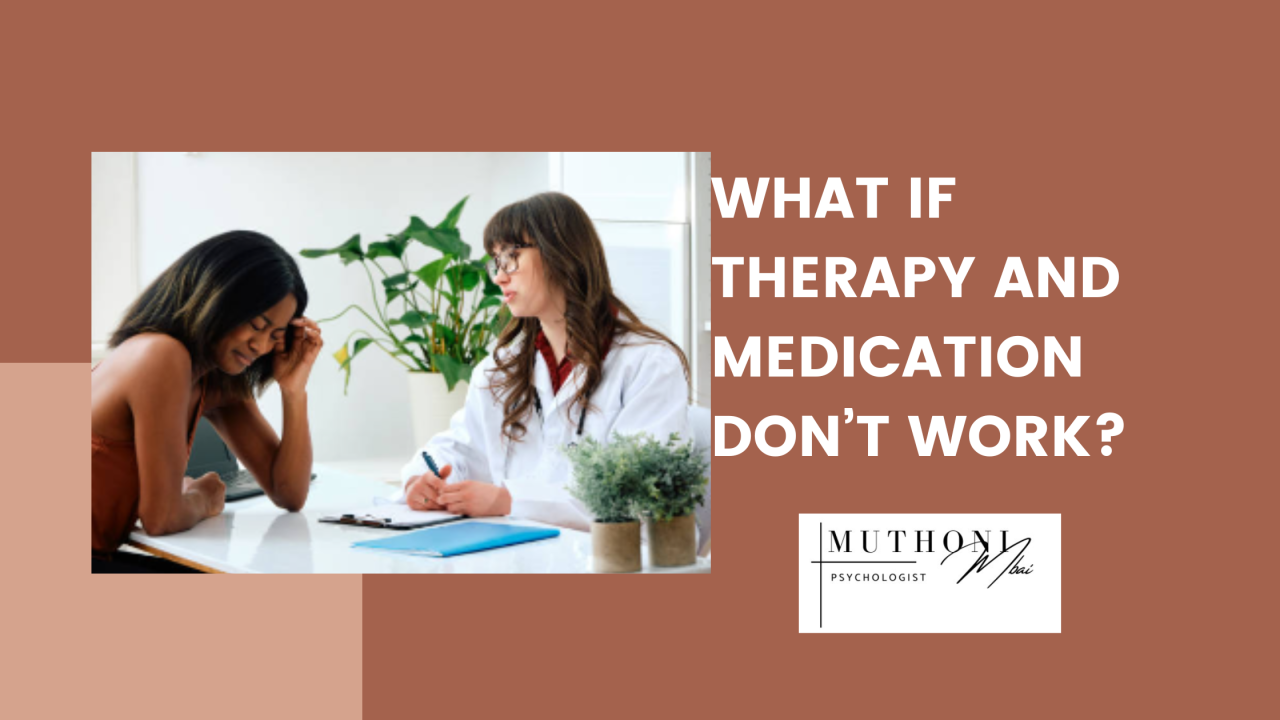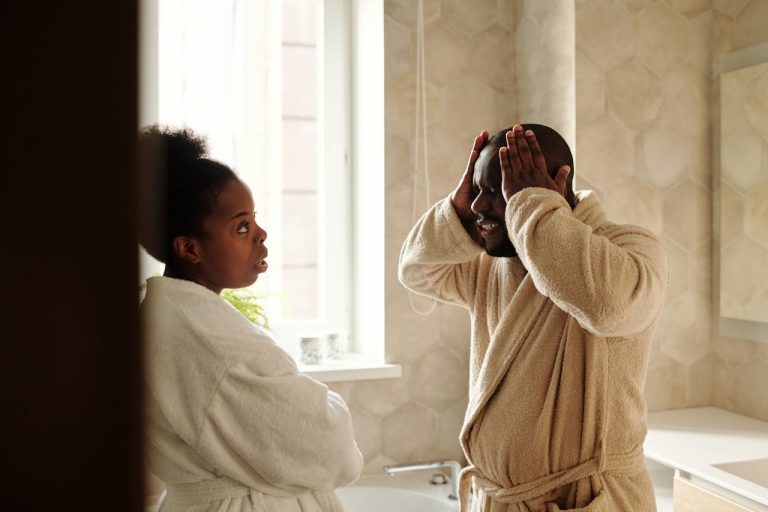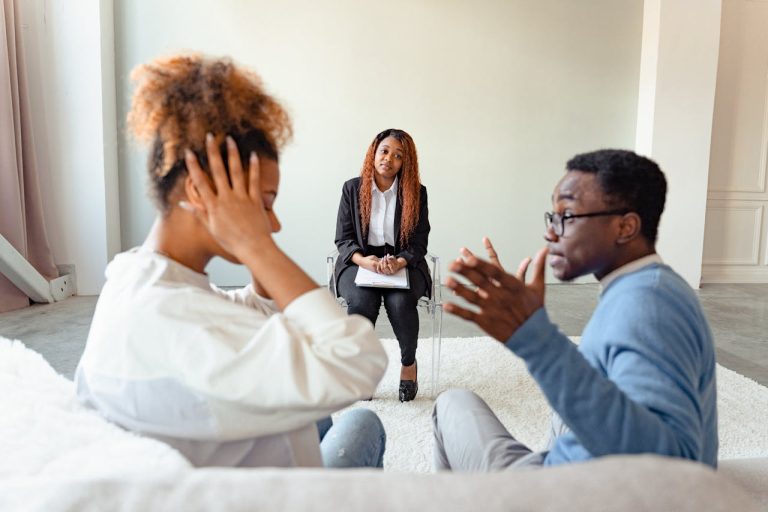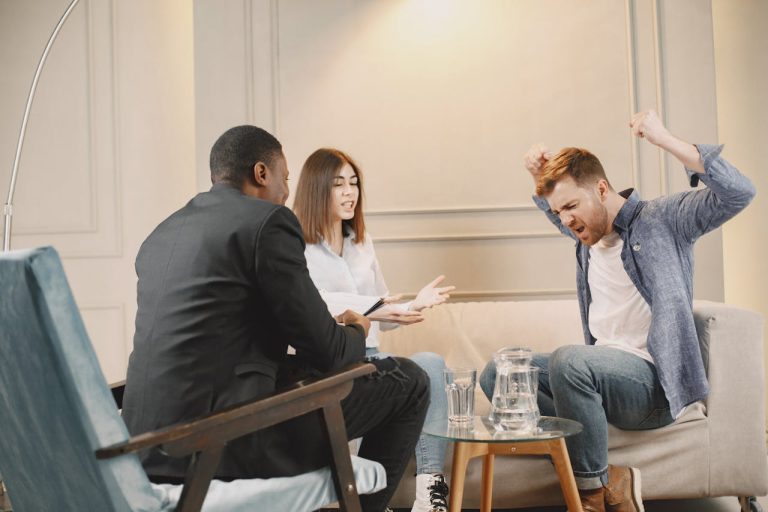
What If Therapy and Medication Don’t Work?

We keep insisting, ‘seek therapy’, ‘adhere to medication!’ ‘Be consistent for the treatment to be effective’ But what What If Therapy and Medication Don’t Work?
For many, therapy and medication are lifelines for managing mental health challenges. But what happens when these solutions seem ineffective? This situation can leave you feeling stuck, hopeless, and desperate for alternatives.
If you’ve tried therapy and medication without the results you hoped for, it doesn’t mean all is lost. Here’s what to do when therapy and medication don’t work:
1. Reassess Your Current Approach
Sometimes, it’s not that therapy or medication won’t work, but that the approach needs adjustment.
- Consider a New Therapist or Therapy Style: Therapy is not one-size-fits-all. If your current therapist or modality (e.g., CBT, psychodynamic therapy) doesn’t resonate, exploring others like EMDR, Dialectical Behavior Therapy (DBT), or group therapy might be helpful.
Read: 10 Signs You’ve Found a Good Therapist
- Reevaluate Your Medication: Medications often require tweaking. Discuss with your psychiatrist about trying a different medication, adjusting the dosage, or adding another medication to enhance effectiveness.
- Combine the Two: If you’ve only tried therapy or medication separately, combining them might yield better results.
2. Look Beyond Conventional Methods
When traditional therapy and medication fail, it may be time to explore alternative or complementary treatments.
- Holistic Therapies: Practices like mindfulness, yoga, acupuncture, or aromatherapy have been shown to help some people regulate their mental health.
- Lifestyle Changes: Diet, exercise, and sleep hygiene are foundational for mental health. Small improvements in these areas can have a significant impact.
3. Seek Support From Others
Feelings of isolation often worsen when therapy and medication don’t work. Finding connection can provide relief.
- Peer Support Groups: Joining a group where people share similar struggles can offer validation and new perspectives.
- Confide in Trusted Friends or Family: A strong support system can help you navigate the challenges of finding the right care.
4. Give Yourself Grace
Experiencing frustration when therapy and medication don’t work is normal. Many people reach this point feeling fatigued or coerced into treatments that don’t align with their needs.
Take a moment to acknowledge your efforts and remind yourself that seeking help is a courageous act.
What If Therapy Doesn’t Help Me?
If therapy doesn’t feel helpful, consider whether the issue lies with the therapy itself, the therapist, or external factors.
- Therapist-Client Fit: Not every therapist is the right match for every client. If you feel unheard or misunderstood, consider switching therapists. Read: 9 Sure Signs a Therapist is a Bad Fit for You
- Therapy Goals: Therapy works best when both therapist and client have a shared understanding of the goals. If goals feel unclear or irrelevant, discuss this with your therapist.
- Patience: Progress can be slow. Therapy is often about building skills and gaining insight over time, so give yourself room to grow.
How to Know If Therapy Is Not Working
Therapy may not be effective if:
- You See No Progress Over Time: If weeks or months go by without noticeable change, it may be time to reassess.
- You Dread Sessions: Therapy should feel like a safe space. If it’s a source of stress, the approach may need adjustment.
- You’re Repeating the Same Patterns: Stagnation or revisiting the same issues without resolution can signal that the current strategy isn’t working.
Is Therapy Better Than Medication?
Therapy and medication serve different purposes, and their effectiveness depends on the individual and the condition being treated.
- Therapy Pros: Helps address root causes, develop coping skills, and foster self-awareness. Effective for long-term emotional growth.
- Medication Pros: Can stabilize acute symptoms like severe depression or anxiety, making therapy more accessible.
- Combination: Research shows that combining therapy and medication is often more effective than either alone, particularly for conditions like major depression or PTSD.
What Is It Called When Medication Doesn’t Work?
When medications fail to alleviate symptoms, it is often referred to as treatment-resistant or refractory depression, anxiety, or other conditions. This can happen for several reasons:
- Incorrect Diagnosis: The root issue may be misdiagnosed, leading to ineffective treatment.
- Biological Factors: Genetic or physiological factors may make certain medications less effective for you.
- Medication Burnout: Over time, some people develop a tolerance to their medication, reducing its effectiveness.
If you experience treatment resistance, talk to your psychiatrist about advanced interventions like Electroconvulsive Therapy (ECT)
Final Thoughts
If you’re asking, “What if therapy and medication don’t work?” you’re not alone. Many people face this frustration, and it doesn’t mean you’re beyond help.
With persistence, openness to new approaches, and the right support, there is hope for finding relief. Remember, seeking help in itself is a step toward healing—and your journey is far from over.



